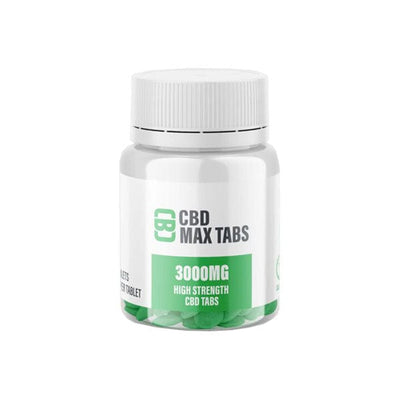Embracing CBD in a Holistic Lifestyle: A Natural Approach to Wellness
Introduction:
A holistic lifestyle emphasizes the interconnectedness of the mind, body, and spirit in achieving overall well-being. This approach often involves incorporating natural therapies, such as herbal remedies, meditation, and yoga, to promote balance and harmony in one's life. In recent years, cannabidiol (CBD) has gained popularity as a natural remedy for various ailments, fitting seamlessly into a holistic lifestyle. In this blog post, we will explore the role of CBD in a holistic lifestyle and how it can contribute to overall wellness.
What is CBD?
Cannabidiol (CBD) is a non-psychoactive compound found in the Cannabis sativa plant, known for its potential therapeutic properties. Unlike delta-9-tetrahydrocannabinol (THC), which causes the "high" commonly associated with marijuana use, CBD does not produce mind-altering effects. Research has shown that CBD may provide relief for various conditions, including chronic pain, inflammation, anxiety, and epilepsy.
The Role of CBD in a Holistic Lifestyle:
- Stress Management and Mental Well-being:
One of the primary goals of a holistic lifestyle is to promote mental well-being and reduce stress. CBD has been shown to have anxiolytic and antidepressant properties, which can help alleviate anxiety and depression by modulating the release of serotonin, a neurotransmitter that plays a crucial role in regulating mood, sleep, and appetite. Incorporating CBD into a holistic lifestyle may help support emotional and mental balance, making it easier to manage stress and maintain a positive outlook.
- Pain Relief and Inflammation Reduction:
Chronic pain and inflammation can significantly impact one's quality of life and well-being. CBD has been shown to possess anti-inflammatory and analgesic properties, providing natural relief for various pain conditions, such as arthritis, migraines, and neuropathic pain. By incorporating CBD into a holistic lifestyle, individuals can manage pain and inflammation without relying on synthetic medications, which may have adverse side effects.
- Sleep Improvement:
A good night's sleep is essential for overall health and well-being, and a holistic lifestyle emphasizes the importance of restorative rest. CBD has been shown to help improve sleep quality by regulating the sleep-wake cycle and addressing sleep disorders, such as insomnia. Adding CBD to a holistic regimen can support a healthy sleep pattern and contribute to overall wellness.
- Complementing Alternative Therapies:
A holistic lifestyle often includes various alternative therapies, such as acupuncture, massage, and aromatherapy. CBD can be used as a complementary therapy, enhancing the benefits of these treatments. For example, CBD-infused massage oil can help relieve muscle tension and promote relaxation during a massage session, while CBD tinctures or capsules can be taken alongside herbal remedies for synergistic effects.
Current Limitations and Future Research:
While the existing research on CBD and its potential benefits is promising, it is important to recognize that many studies have been conducted on small sample sizes or animal models. More large-scale, long-term clinical trials are needed to establish the safety and efficacy of CBD for various conditions. Additionally, the optimal dosage, administration method, and potential interactions with other medications need to be thoroughly investigated.
Conclusion:
Incorporating CBD into a holistic lifestyle can provide natural support for stress management, pain relief, inflammation reduction, and improved sleep, contributing to overall well-being. As with any supplement or therapy, it is essential to consult with a healthcare professional before using CBD to ensure it is suitable for your individual needs and compatible with your existing wellness regimen. By embracing CBD as part of a holistic lifestyle, you can work towards achieving balance and harmony in your mind, body, and spirit.






Leave a comment